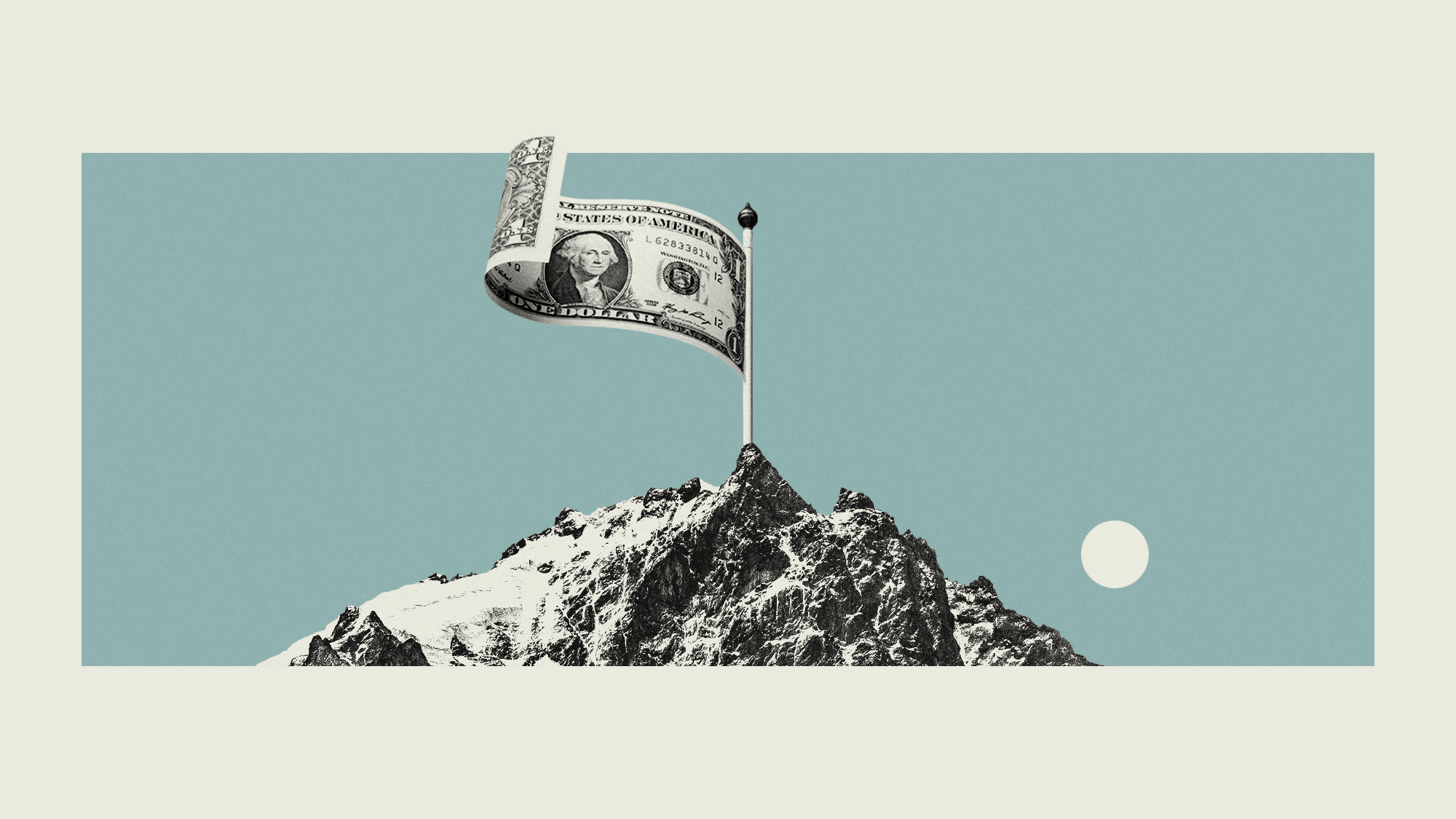Can the dollar stay on top?
Political dysfunction could undermine the world's reserve currency. But not yet.


A free daily email with the biggest news stories of the day – and the best features from TheWeek.com
You are now subscribed
Your newsletter sign-up was successful
The dollar is the world's reserve currency, the backbone of the globalized economy. Would that remain the case if political instability throws the United States off-balance in an election year? Maybe. "The United States is merrily chipping away at the pillars" that make the dollar so dependable, Paritosh Bansal said at Reuters. Growing attacks on the rule of law in the wake of Donald Trump's criminal conviction are just one sign that America is "effectively daring the rest of the world to find an alternative" to the dollar. So far, though, no real alternative is emerging.
The "dominance of America's currency is harder than ever to overturn," Eswar Prasad said at Foreign Affairs. Other countries don't like that financial power, "which exposes their economies and financial systems to the vagaries of U.S. policies." And America's economy is "no longer the colossus it once was," undermined by high debt and "erratic" political decision-making. That should make the dollar weaker. Instead, the "gap between it and any putative rival has only grown and shows no signs of stopping."
What did the commentators say?
"The big threat to dollar dominance is American dysfunction," Steven B. Kamin and Mark Sobel said at Financial Times. The dollar gets its strength from the size of the American economy, which produces 25% of global GDP. That could all go away, though, if "U.S. political dysfunction continues to run amok" and politicians continue to add to the national debt at unsustainable rates. "If the U.S. doesn't keep its house in better order, dollar dominance will be the least of our worries."
The Week
Escape your echo chamber. Get the facts behind the news, plus analysis from multiple perspectives.

Sign up for The Week's Free Newsletters
From our morning news briefing to a weekly Good News Newsletter, get the best of The Week delivered directly to your inbox.
From our morning news briefing to a weekly Good News Newsletter, get the best of The Week delivered directly to your inbox.
"What is striking about America is how immune its markets appear to be to the threat of political dysfunction and fiscal frailty," said The Economist. The rest of the world is struggling — America's economy is growing faster than Europe's, China has been struggling with a property crisis, France is facing a possible takeover by the far right and post-Brexit Britain is stagnating economically. For now, at least, "America is the world economy's only bulwark." But that could be undone by political dysfunction and reckless fiscal policy in Washington."
What next?
There are signs that investors are feeling cautious about the dollar. Central banks around the world "expect global reserves of gold to increase over the next year," said The Wall Street Journal, seeing the shiny metal as a safer bet to store funds. "Extraordinary market pressure, unprecedented economic uncertainty and political upheavals around the world have kept gold front of mind for central banks," said an official with the World Gold Council.
When investors move away from the dollar, it's not usually to the other "big four" currencies — the euro, yen, and pound. Instead, said economists at the International Monetary Fund, it's usually "nontraditional reserve currencies, including the Australian dollar, Canadian dollar, Chinese renminbi, South Korean won, Singaporean dollar, and the Nordic currencies." If the dollar does lose its dominance, it probably won't happen overnight. Instead, it will be a "very gradual" process that gives way to a "rising role for the nontraditional currencies of small, open, well-managed economies."
A free daily email with the biggest news stories of the day – and the best features from TheWeek.com
Joel Mathis is a writer with 30 years of newspaper and online journalism experience. His work also regularly appears in National Geographic and The Kansas City Star. His awards include best online commentary at the Online News Association and (twice) at the City and Regional Magazine Association.
